Benefits and Application of Artificial Intelligence in Healthcare
VerifiedAdded on 2022/11/10
|6
|774
|54
Presentation
AI Summary
The presentation focuses on the benefits and application of artificial intelligence within the healthcare system. It highlights the advantages of AI in enhancing the health outcome of individual patients. The primary benefit of adapting artificial intelligence in healthcare is that it assists the healthcare professionals to clearly understand the routine need and pattern of care for the respective patient and accordingly support and guide the patient to stay healthy and fit.
Contribute Materials
Your contribution can guide someone’s learning journey. Share your
documents today.
1 out of 6
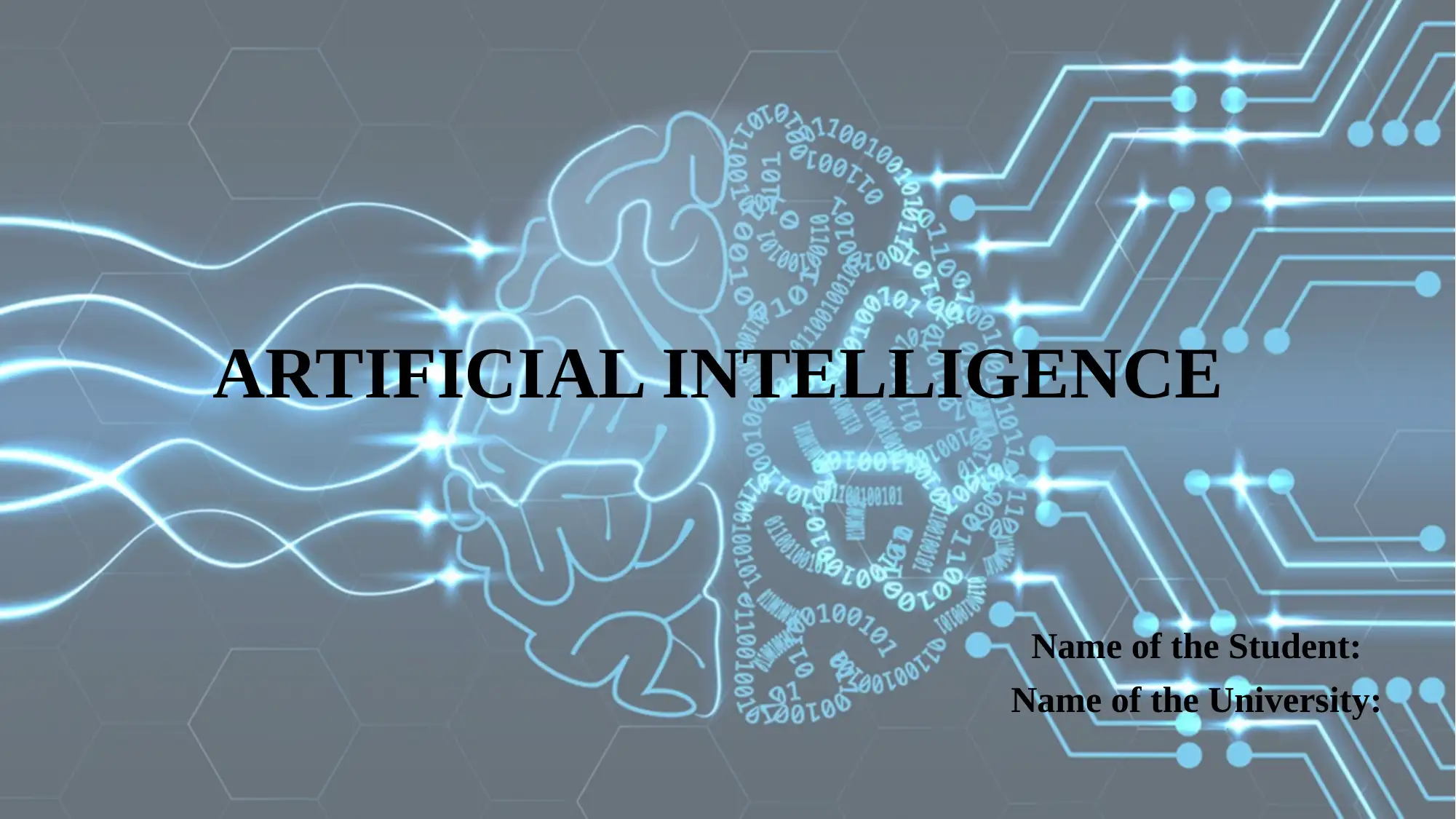
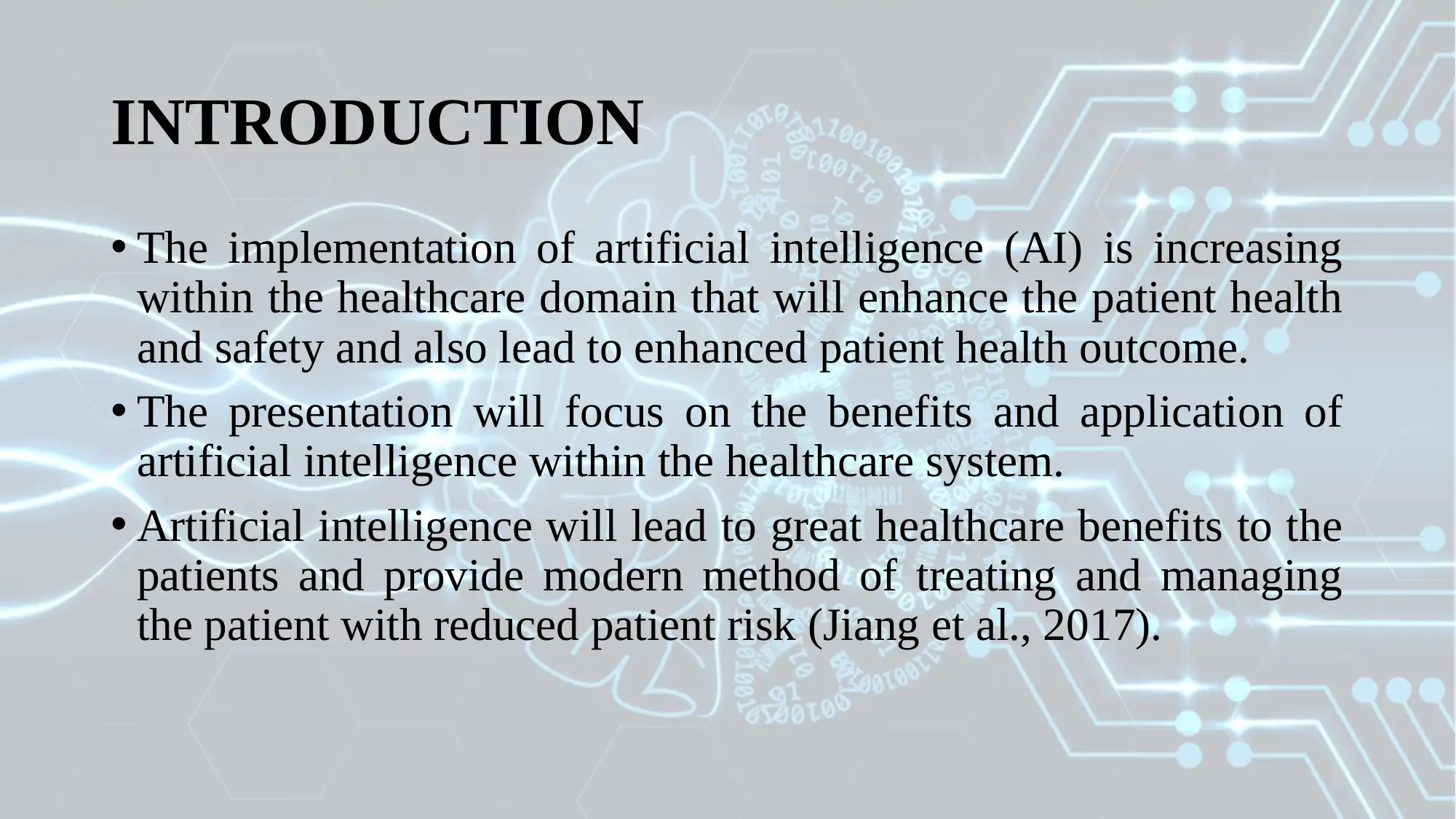
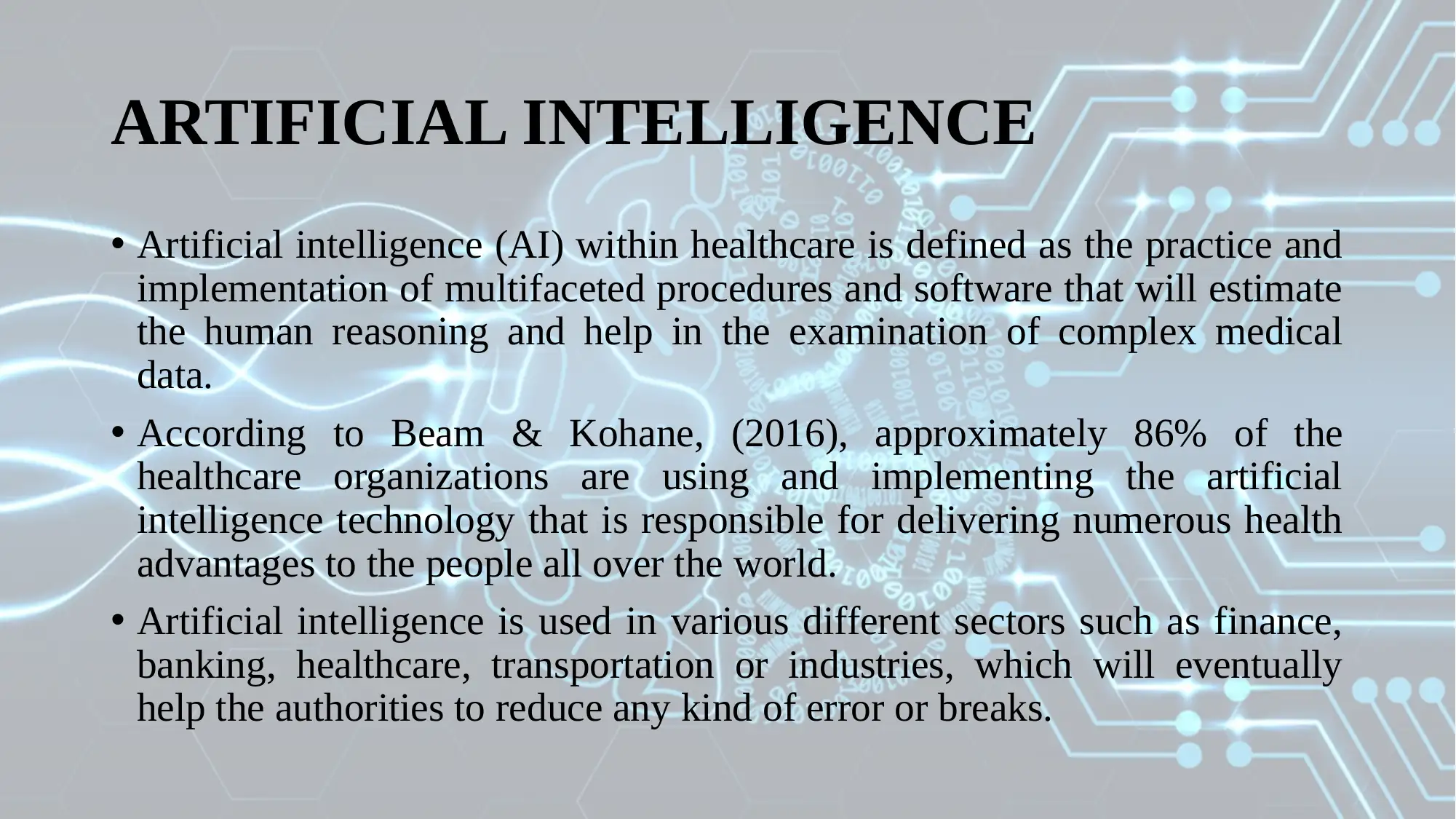
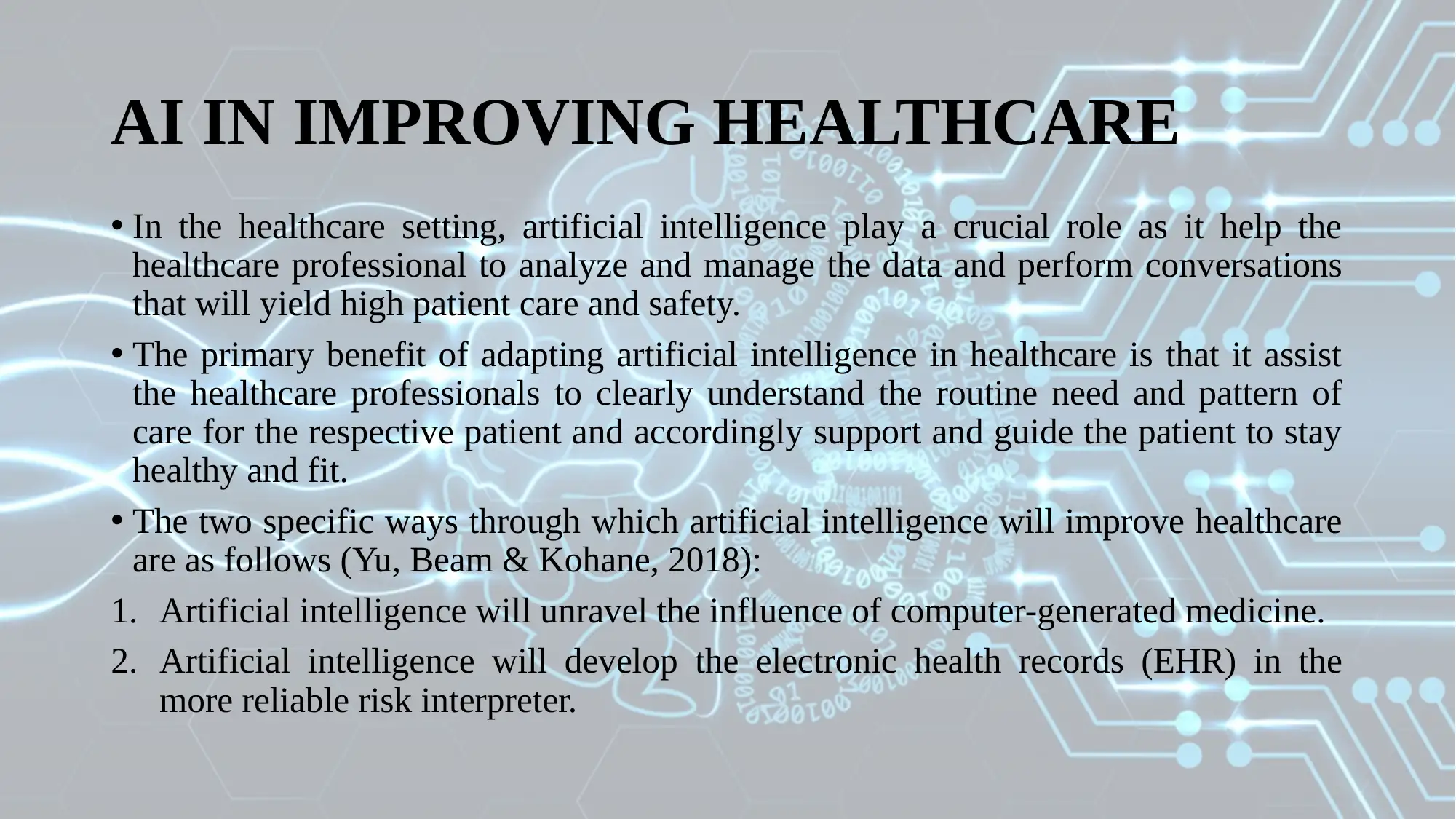
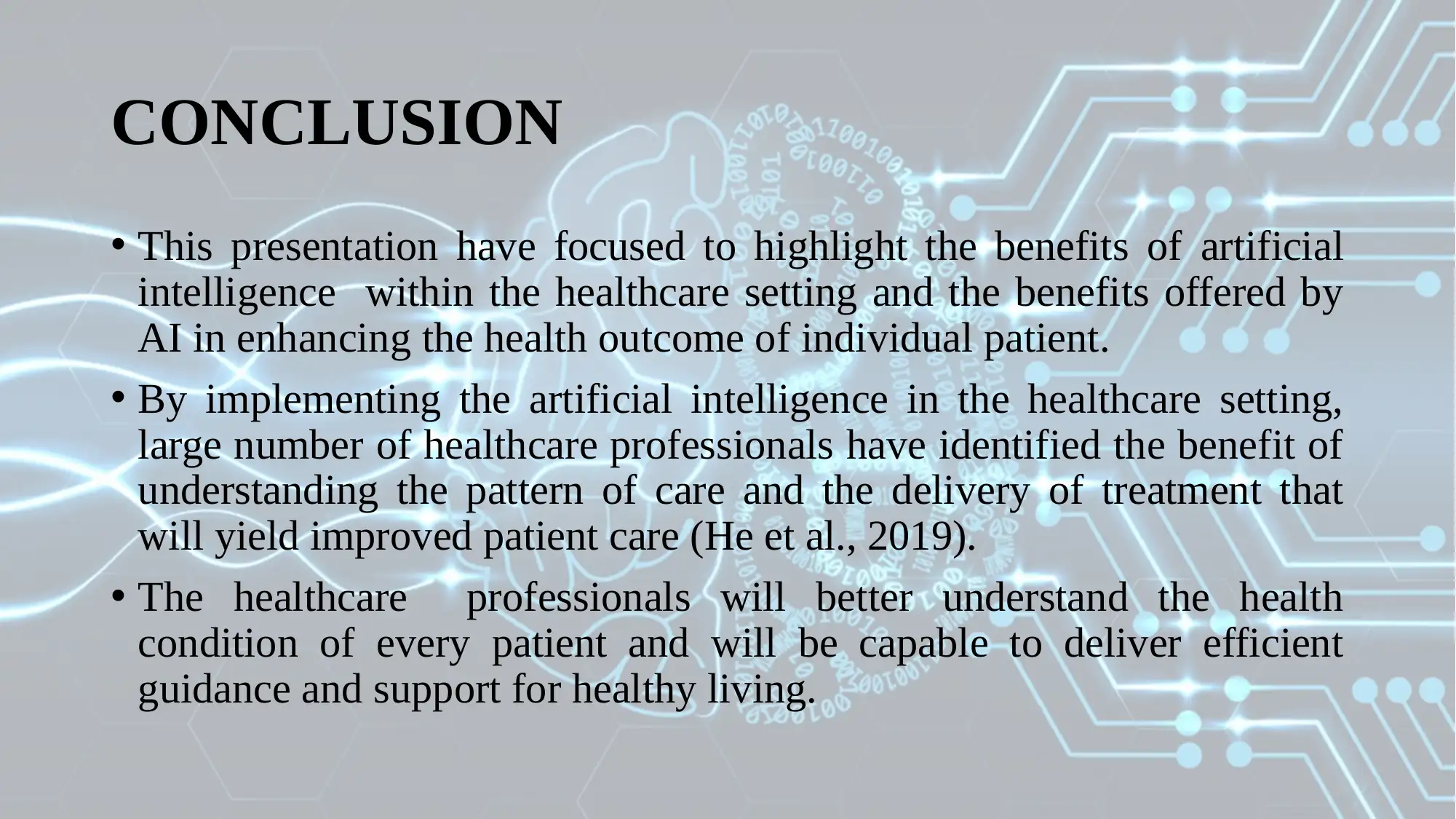
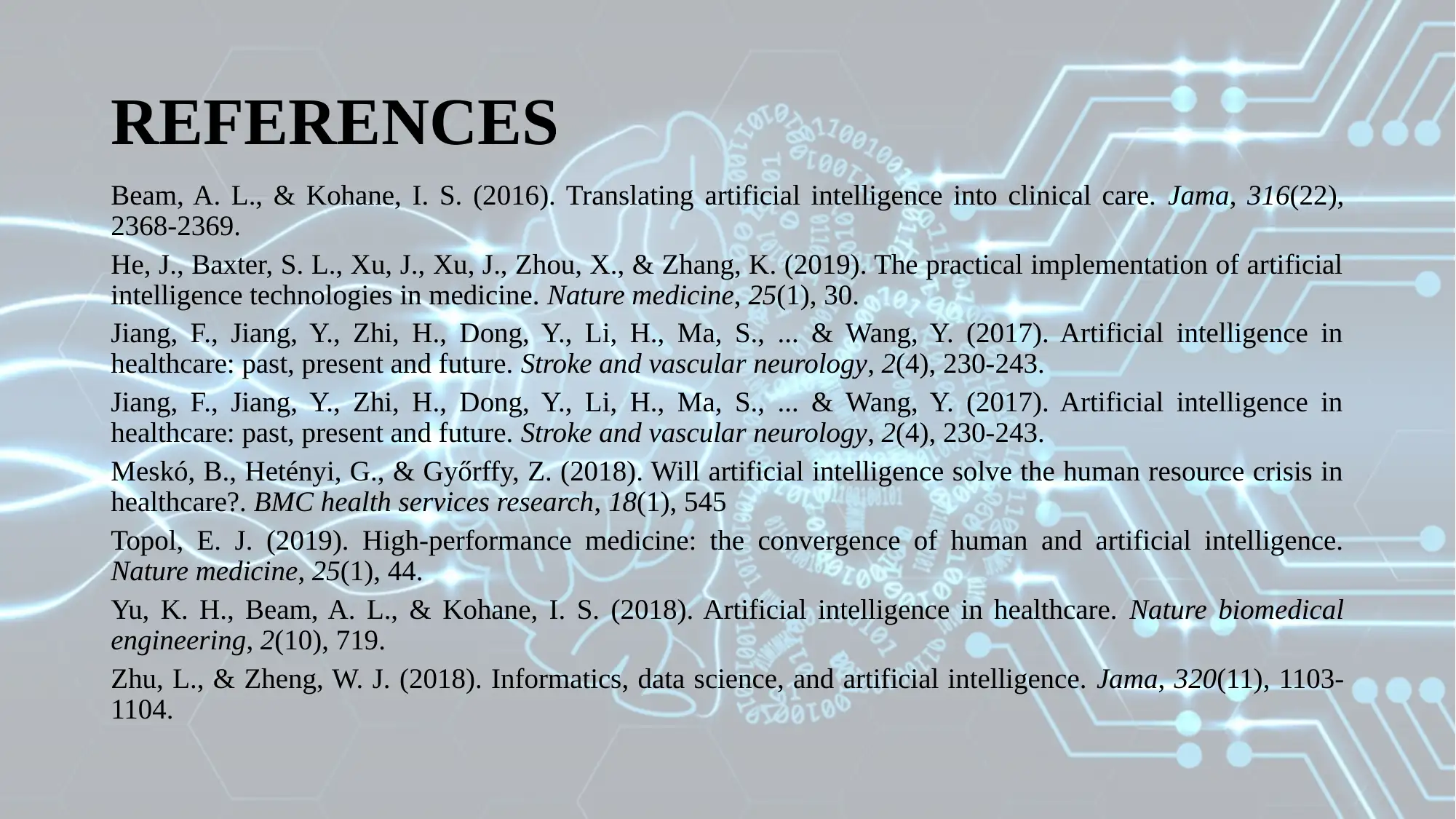






![[object Object]](/_next/static/media/star-bottom.7253800d.svg)